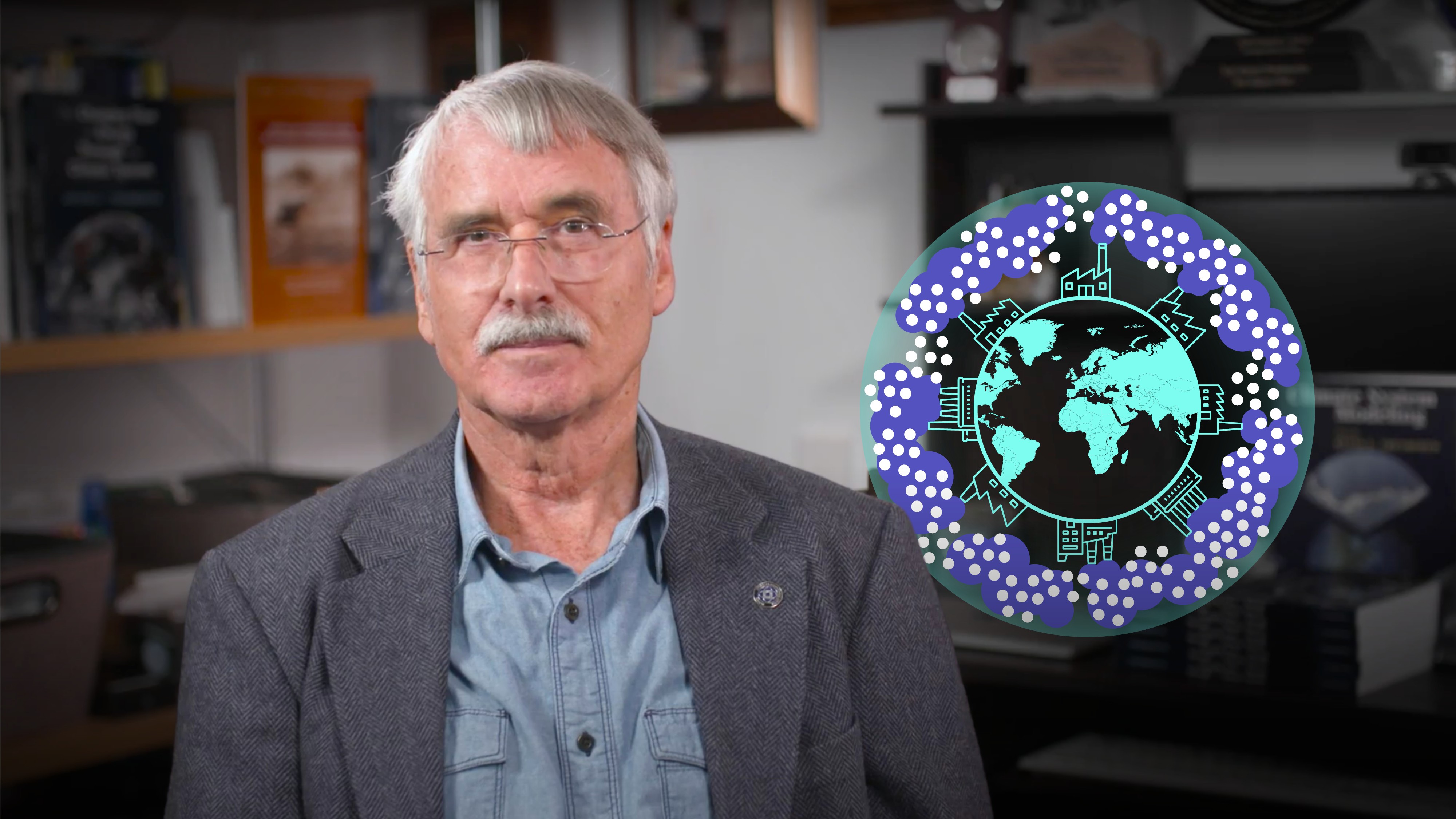
Impact of Human Activities on Climate

Kevin Trenberth
Former Coordinating Lead Author of the IPCC
In the previous video, Kevin Trenberth explained the Earth’s Energy Imbalance (EEI). In this video, Kevin explains how human activities have contributed to this increasing EEI. He also explains some important terms we should all be aware of with regards to the climate crisis, such as aerosols, feedbacks. Finally he introduces climate models and their significance.
In the previous video, Kevin Trenberth explained the Earth’s Energy Imbalance (EEI). In this video, Kevin explains how human activities have contributed to this increasing EEI. He also explains some important terms we should all be aware of with regards to the climate crisis, such as aerosols, feedbacks. Finally he introduces climate models and their significance.
Subscribe to watch
Access this and all of the content on our platform by signing up for a 7-day free trial.

Impact of Human Activities on Climate
14 mins 16 secs
Key learning objectives:
Understand what are aerosols and how they impact the climate system
Understand how human activities have contributed to global warming
Understand the need for climate modelling
Overview:
The Earth’s energy is increasing at a scary pace and this is responsible for extreme weather events occurring more frequently. It is vital to understand the contribution of human activity. It is also important to understand the impact of external elements such as aerosols and how the climate system itself reacts to all these changes (feedbacks). Ultimately, it is important that scientists are able to accurately model these changes and ensure the right policies and actions are taken to stop global warming.
Subscribe to watch
Access this and all of the content on our platform by signing up for a 7-day free trial.
How have human activities impacted the climate system?
Human activities such as travel and industry cause the burning of fossil fuels which results in increased concentrations of greenhouse gases. Additionally, activities such as deforestation, building of concrete jungles, usage of water, usage of energy and chemical fertilisers destabilise the natural balance. Human impact on climate is evident from the fact that temperatures within large cities have increased in comparison to rural areas (this is referred to as “Urban Heat Island”, UHI). A contrasting effect is seen in some rural areas which are excessively watered as the sun's heat works to remove the moisture rather than increase temperature. This has been referred to as “suburban cooling”. Both UHI and suburban cooling show how human activities affect the land’s properties and temperature dynamics in a localised area.
What are aerosols and how do they affect the climate system?
Aerosols are minute whitish particles that hang in the atmosphere and play a crucial role in cloud formation. Around 90% of aerosols are naturally occurring. However, there is an increasing amount of aerosols as a result of human activities. Aerosols can be washed out very quickly by rain and have an average life of just 5 days. They tend to be suspended in air near the source and have a localised effect on the clouds and solar radiation in that area.
How do aerosols interact with solar radiation?
The type of interaction aerosols have with solar radiation depends on many factors including the size of the particle, its chemical composition, and height and positioning with respect to clouds. Aerosols can interact with incident radiation as follows:
- Refract/reflect solar radiation back into space (this cools the Earth)
- Absorb solar radiation and increase temperature in the lower atmosphere
- Influence the type and amount of clouds that form
For example, sulphate aerosols, are known to cool the earth by reflecting sun’s radiation back into space. But these sulphate aerosols also cause acid rain. Whilst aerosols may not cancel global warming, they may reduce the effects in that specific local area.
What are feedbacks?
Feedbacks refer to the way in which the climate system is itself responding to both internal and external changes. Changes that intensify the effect of greenhouse gases are known as positive feedbacks and those that diminish it are negative feedbacks. Feedbacks can have a domino effect on the various climate forces we discussed and start a chain reaction, known as feedback loops. Negative feedback loops regulate and offset the effects of positive feedback loops. A common and important example of a positive feedback loop is water vapour while radiative damping is an example of a negative feedback loop.
A positive feedback loop can spiral out of control and cause irreversible changes, this is commonly referred to as a Tipping point. Feedbacks have an overall amplifying effect, so that for doubling the amount of carbon dioxide in the atmosphere, instead of about 1°C warming, the warming is between 1.5°C to 4.5°C, with a best guess of 3°C.
Why do we need to model the climate?
The EEI is ever changing and needs to be monitored and assessed to understand the causes of the variations and to make the right decisions to fight global warming. Climate models replicate and help us understand the flows of energy through the system. The way in which models are constructed differs and this affects how they react or adapt to different inputs and variables. There is no set rule around the variables to be included. However, a good model needs to:
- Be unbiased,
- Have a good starting point, encompassing all current state aspects and elements,
- and be able to predict forcings of the climate system and also account for the influence of human activities.
Climate models are conditional on several factors and their results are intended to be used as policy and decision-making tools.
Subscribe to watch
Access this and all of the content on our platform by signing up for a 7-day free trial.

Kevin Trenberth
There are no available Videos from "Kevin Trenberth"



























